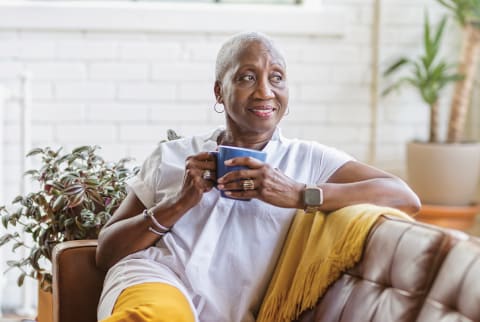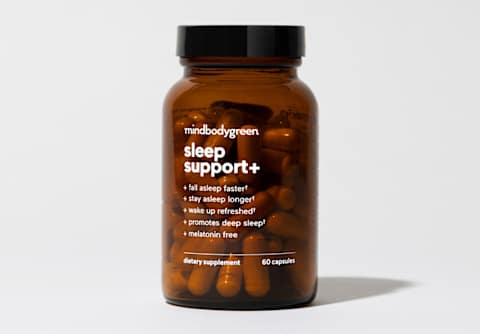Advertisement
This Supplement Is The Secret To Sleeping Through The Night In Your 50s & Beyond


As we get older, sleep can become a challenge—especially for those who go through the menopause transition.
Besides mood swings and temperature regulation issues, the menopausal period can mess with our sleep. Since the body sleeps best when slightly cool, the added heat doesn't help.
With even more things standing in the way of a good night's sleep, good sleep hygiene becomes even more important for people in their 50s and beyond. This means turning off electronics early, minimizing stress where you can, and keeping to a consistent sleep schedule. The right sleep supplement can also be helpful for people navigating this tricky time of life. One nonhormonal option to look into is sleep support+.
Sleeping through the night after 50
Sleep support works differently than other popular sleep aids like melatonin, which is a hormone available only via prescription in many places outside of the U.S. Where melatonin manipulates hormones to help you fall asleep faster (but not stay asleep any longer), sleep support+ is formulated to promote deep, restorative rest throughout the entire night.*
It contains three ingredients that are clinically shown to support sleep from all angles: magnesium bisglycinate to promote a steady state of relaxation, jujube for calming and sedation, and PharmaGABA® to enhance natural sleep quality.* The result is a nightly sleep supplement to help people of all ages fall asleep faster, stay asleep longer, and wake up feeling restored.*
As Robin G. writes of her experience taking sleep support+, "I am so impressed with this product! I am 58 and dealing with sleeplessness (or very little sleep) two to three times a week for the past few months. My sleep has much improved since taking this."*
Reviewer Nancy S. reports a similar experience. At 69 years old, she struggles with staying asleep through the night. Since taking sleep support+, she's found that she'll still wake up at 2 or 3 a.m. but finds it easy to fall right back asleep afterward. "This supplement has improved my sleep,"* she writes.
Others note that it has specifically helped them navigate the changes of menopause. "I started taking this as I was struggling with perimenopause sleep issues. I now take it daily and am sleeping better than I ever have. I feel very lucky to have found a safe and supportive way to better sleep,"* notes reviewer Jennifer L.
The takeaway
Sleep needs will change as we get older, and transitions like menopause can greatly affect our ability to get high-quality rest. Along with lifestyle changes, taking a supplement like sleep support+ can help. Learn more about the nightly sleep aid here.
